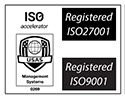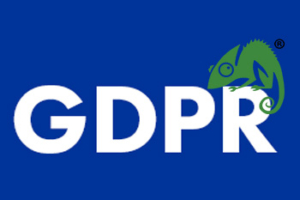Amazon Launches 360 Spin Images To Boost Product Listings
From luxury jewelry brands to automotive manufacturers, online sellers are embracing the potential of 360 spin images. Recently Amazon added 360 image capability for vendors on their platform and the results have so far been promising.
Although 360 spin images are more expensive than standard photography, the potential return on investment can be huge, according to Jeff Hunt, founder and CEO of 360 imagery provider Snap 36.
360 spin images allow an online shopper to virtually interact with an item. Multiple images are taken of the item from all sides, and are pieced together in a way that offers a full 360 degree view of the product when the shopper interacts with the image on their screen.
“I, as the consumer, now have control over that product,” Hunt said. “I can pick it up just as if I was in a store, I can turn it around and look at what’s important to me to finish the loop in the buying process. Once you put that in someone’s hands, their confidence and their trust go through the roof.”
Strong results from 360 spin images
In the online retail space, the push toward 360 spin images started as early as 2008. Even before brands had any proof that 360 images would work, they strongly suspected it was an avenue worth pursuing.
The automotive accessory manufacturer Gold Eagle Company, whose brands include 303 Products and STA-BIL, was one of the early adopters.
“ We decided to roll out spin images on Amazon for our brands 303 Products and STA-BIL to allow consumers the opportunity to “touch and feel” our products virtually,” says Salisia Webber, Ecommerce Sales Manager, at Gold Eagle Co.
Within the first couple of weeks of adding 360 spin images to their product pages, the company saw a 6-8% lift in conversion rates.
An unexpected benefit was a reduction in product returns since adding 360 spin images. “We are now able to avoid returns because we are providing consumers more information beforehand with the 360 images,” says Webber. “They can now view the bottles from different angles and read the back labels as if they were shopping in a physical store.”
What took Amazon so long?
The early adopters of 360 images used it to promote their own products on their platforms. Slowly, once they’d proved the concept and tested the technology, they started inviting distributors to do the same.
Amazon held back this long because they are faced with the challenge of providing this capability to millions of sellers. The potential for technical and quality issues is high if the rollout is not well controlled.
So far the early results have been very convincing. After an initial 60-day pilot Amazon started introducing it out as a standard feature for select vendors. That’s an extremely short testing phase for Amazon. Although their initial numbers are not available, whatever results they saw were enough to justify this quick approval in a matter of just two months.
Even so, Amazon initially made 360 spin available to vendors in select categories. That gave them some measure of control over quality, and minimizes the number of sellers who will be introducing it at any one time. But now, most categories on Amazon have 360 image capability.
Vendors pay for the images out of pocket by partnering with third party photography studios like Snap 36, or creating their own. The upfront cost might slow adoption by some, but the potential return on investment will make it an attractive prospect.
Some brands find success with cheaper alternatives
While the technology is still fairly nascent, and relatively pricey to execute, some brands have been going to DIY route.
Justin Haver, Vice President of GoVacuum.com, shelved the investment in 360 spin images after an initial test of two items produced no increase in conversion rates. Instead, the company opted for a DIY approach. “We instead opted to buy a motorized $25 cake turner off Amazon and film a video to put on Youtube and embed on our website,” says Haver. The company also wrote SEO-optimized content for the Youtube video.
“We actually saw a boost to the traffic from Google and from Youtube itself,” says Haver. “This helped boost the conversion rate by 72% in one week. Today this item is one of our best sellers.”
Who 360 imagery helps
If all goes well, and the overall experience of other online retailers suggests that it will, Amazon will likely expand the categories that can use 360 spin imagery.
Snap 36’s Jeff Hunt says he has yet to find a category of merchandise that does not see a benefit from 360 spin images. Even a company that sells clear bottles saw a 25% increase in top-line revenue when they started using the technology.
Other products that don’t seem like great candidates for 360 spin at first glance have gotten positive results. Consumer brands are a good example. Although being able to see all sides of a bottle of laundry detergent doesn’t seem all that important, it can be a huge selling point for buyers who are seeking more product information. As consumers embrace sustainability and seek to be more informed, 360 imagery allows them to read the labels and verify product information.
Having 360 spin images of a product also gives brands an advantage in visual search and object character recognition (OCR). Artificial intelligence and OCR engines can easily pull information from all product labels, which improves categorization and searchability.
360 spin images are likely to have a huge effect for vendors who have access to the feature, but it’s not going to make other forms of visual imagery obsolete. Still images are useful for showing a product in context — a chair in a dining room for example. Meanwhile, video tells the consumer what the brand thinks is important about their product. Adding all three will create a battalion of powerful tools for any brand on Amazon.
Original Article:- https://www.forbes.com/sites/kirimasters/2018/11/07/amazon-360-spin-images-on-product-listings/#512b08297bc0








